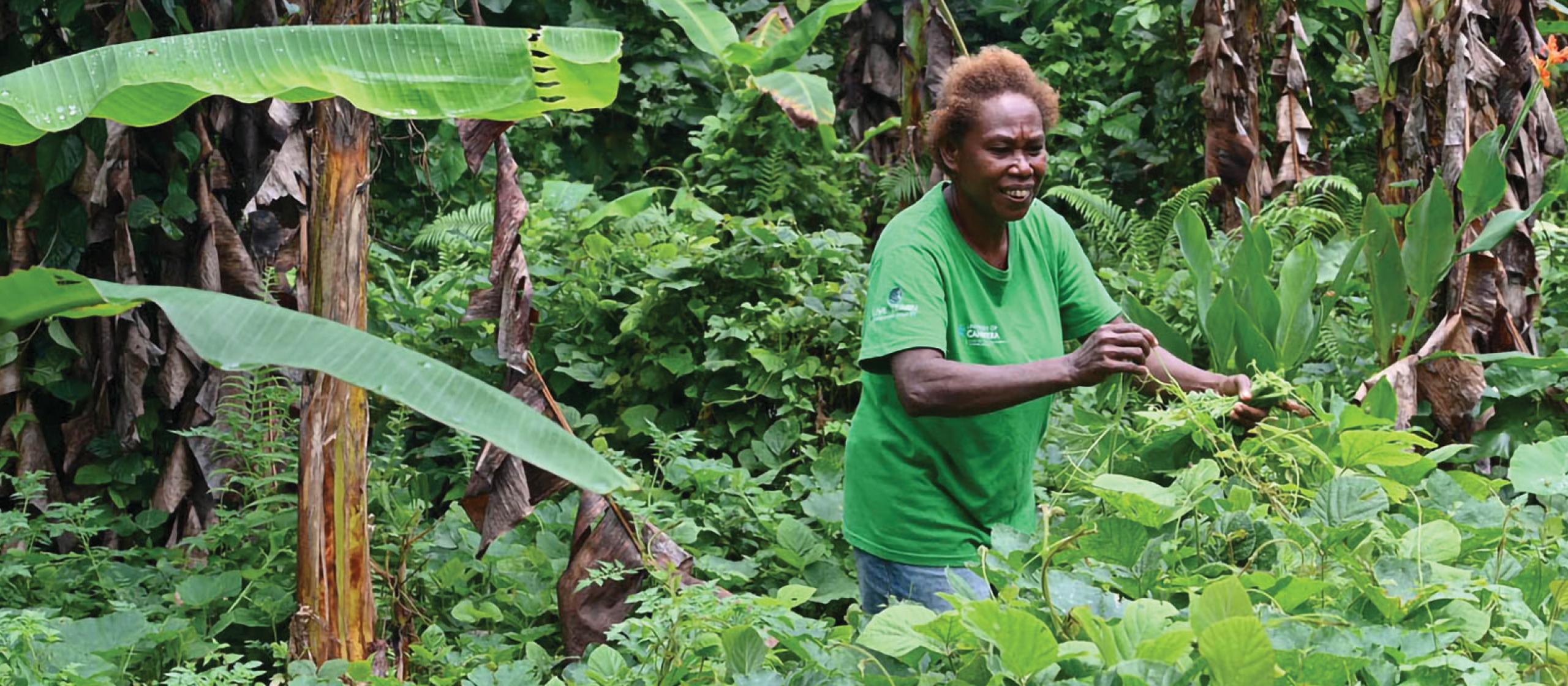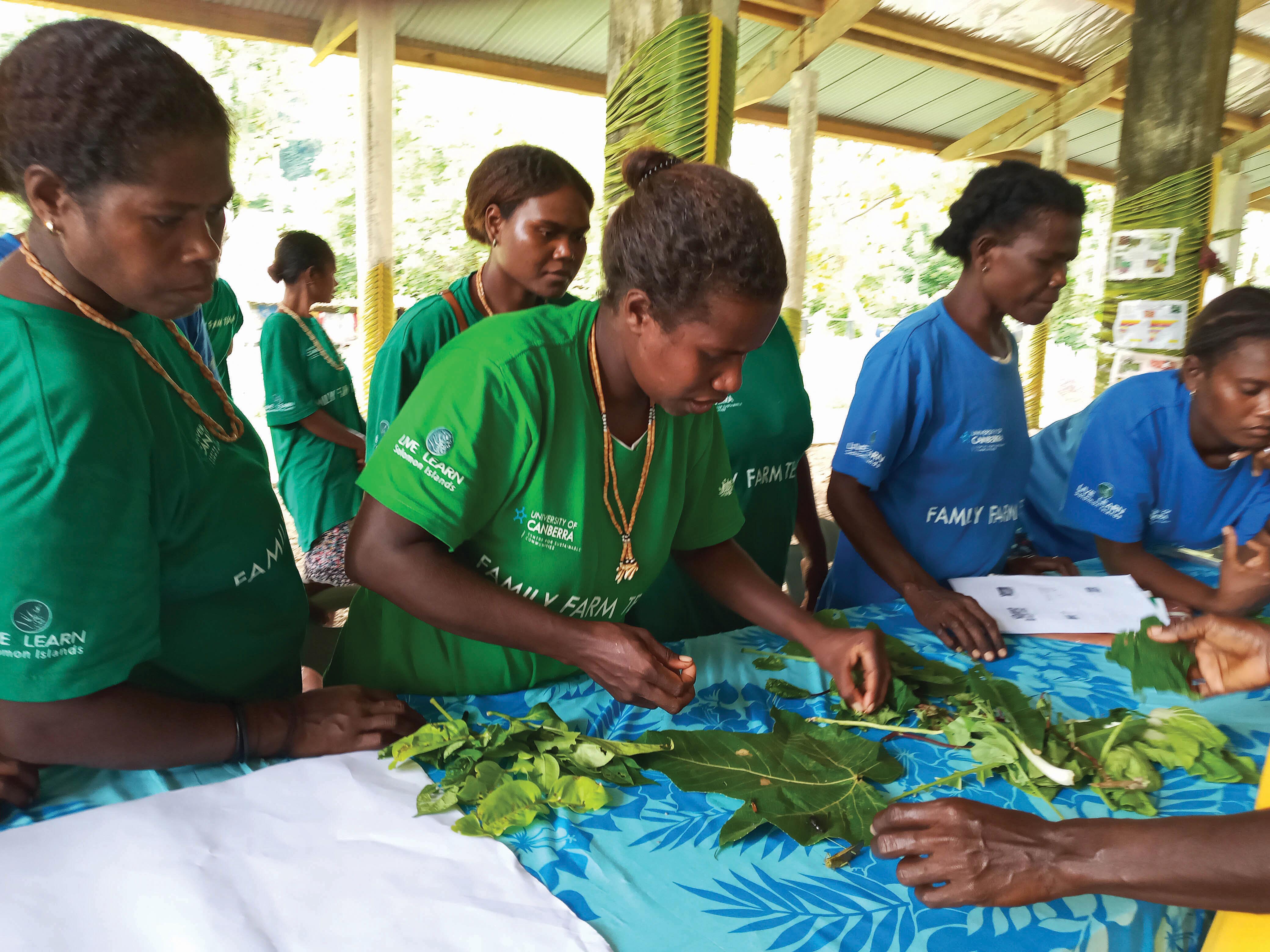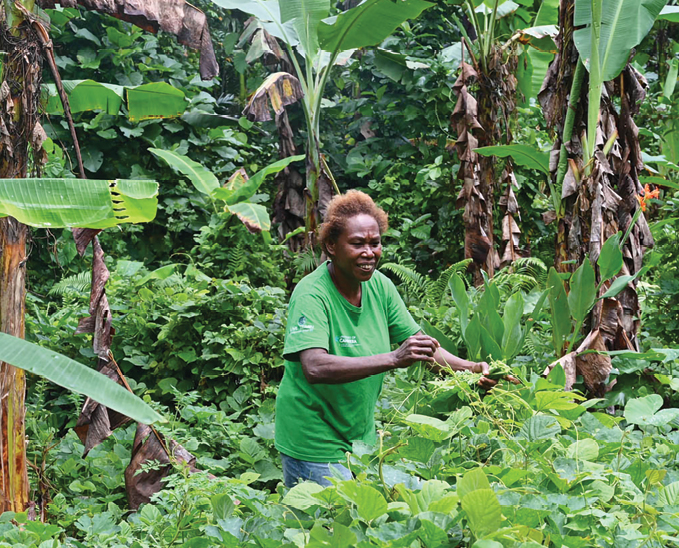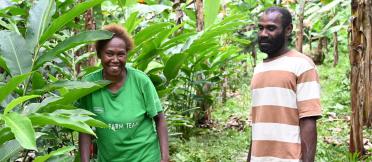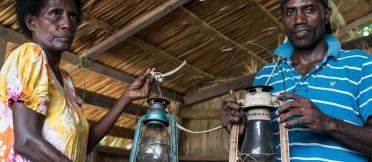Professor Barbara Pamphilon from the University of Canberra led the development of FFT, which aims to encourage more effective, sustainable and gender-equitable farming and business practices.
In PNG, women and girls provide 85% of the food production labour, but their contribution is often not acknowledged.
Although women farmers are key to the livelihoods of PNG families, most face limited access to productive resources, restricted mobility, unequal divisions of labour and low levels of schooling.
FFT provides training via 4 modules:
1. working as a family farm team for family goals
2. planning your family farm as a family team
3. feeding your family farm team
4. decision-making and communicating as a family farm team.
Trainers use experiential learning activities such as drawing and role-plays to facilitate understanding, reflection, planning and change.
They teach family pairs (often couples) to be Village Community Educators (VCEs) to equip others in their community. This way, women and men work together to support and guide changes in their family and community.
